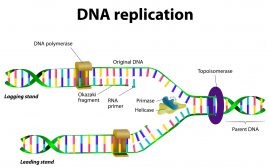Definition
noun, plural: sphingolipidoses
A lysosomal disease due to an abnormal sphingolipid metabolism
Supplement
Sphingolipidosis is a collective term for the various metabolic disorders due to an abnormal sphingolipid metabolism. It is one of the many different types of lysosomal disease. It is also a class of lipid storage disorders.
Some of the sphingolipidoses are Niemann-Pick disease, Fabry disease, Krabbe disease, Gaucher disease, Tay-Sachs disease, and metachromatic leukodystrophy. Niemann-Pick disease is characterized by the accumulation of sphingomyelin in brain and erythrocytes due to a deficiency in sphingomyelinase. This condition is an autosomal recessive trait. Fabry disease is an X-linked condition characterized by a buildup of glycolipids (i.e. ceramide trihexoside) in brain, heart, and kidney. It is caused by a deficiency in α-galactosidase A. Krabbe disease is an autosomal recessive disease that is caused by a deficiency in galactocerebrosidase. It is characterized by the accumulation of glycolipids, particularly galactocerebroside, in oligodendrocytes. Gaucher disease is an autosomal recessive disease where glucocerebrosides accumulate in erythrocytes, liver and spleen due to a deficiency in glucocerebrosidase. Tay-Sachs disease is another autosomal recessive type of sphingolipidosis wherein hexosaminidase A levels are low. This results in the buildup of GM2 gangliosides in neurons. Metachromatic leukodystrophy is a sphingolipidosis that is acquired as an autosomal recessive trait. It is characterized by having Sulfatide compound buildup in neural tissue due to a deficiency in arylsulfatase A or prosaposin.
Synonym(s):
- sphingolipodystrophy
See also:







